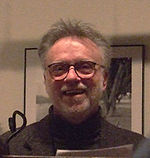No subscription or hidden extras
#creativity #inspiration #novel #poem #poetry
Read through all quotes from John Crowley
He studied at Indiana University and has a second career as a documentary film writer. In 1987 Crowley embarked on an ambitious four-volume novel Ægypt comprising The Solitudes (originally publiJohn Crowleyd as Ægypt) Love & Sleep Dæmonomania and Endless Things publiJohn Crowleyd in May 2007. 1997: Gone received the Locus Award for Best Short Story
1999: "La Grande oeuvre du temps" the French language edition of "Great Work of Time" (translated by Monique LeBailly) won the Grand Prix de l'Imaginaire Nouvelle étrangère (Grand Prize for translated story)
2003: The Translator received the Italian Premio Flaiano[citation needed]
2006: World Fantasy Award for Life Achievement
Bibliography
Novels
The Deep Doubleday (1975)
Beasts Doubleday (1976)
Engine Summer Doubleday (1979) — Bantam Books edition 1980 with cover art by Elizabeth Malczynski — John W.
John Crowley (born December 1 1942) is an American author of fantasy science fiction and mainstream fiction. He is best known as the author of Little Big (1981) which received the World Fantasy Award for Best Novel and has been called "a neglected masterpiece" by Harold Bloom and his Aegypt series of novels which revolve around the same themes of Hermeticism memory families and religion.

